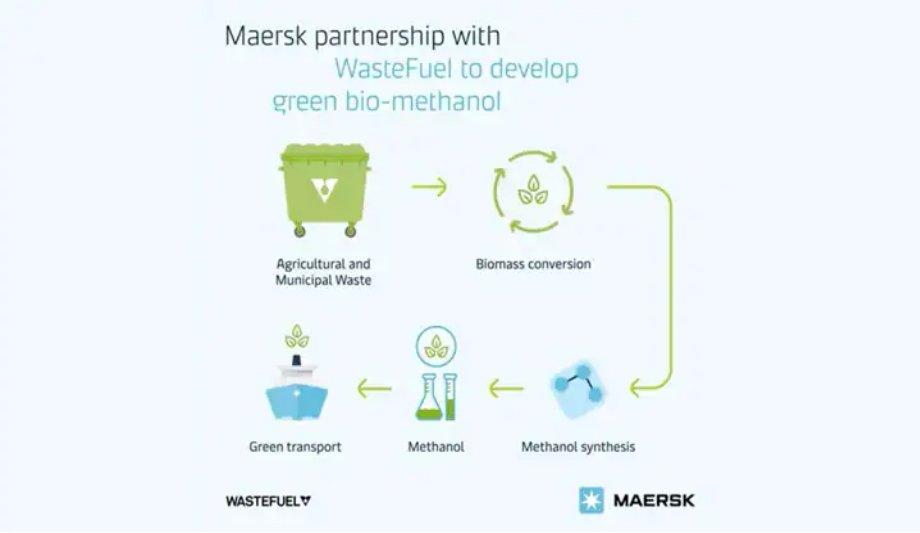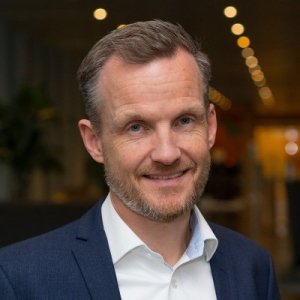Promising fuels of the future
Maersk is confident that green bio-methanol is one of the promising fuels of the future as it can be scaled up and play an important role in decarbonising supply chains within the next 10-15 years.
For each feedstock and project, we evaluate its sustainability as well as the emission reductions, using lifecycle analysis including all greenhouse gases.
Future green solutions
WasteFuel goal is to reduce lifecycle greenhouse gas emissions by 90% compared to fossil fuels "We know that sourcing an adequate amount of green fuel for our methanol fueled vessels will be very challenging, as it requires a significant production ramp up globally. Collaboration and partnerships are key to scaling the production and distribution of sustainable fuels, and we look forward to doing exactly that with WasteFuel; exploring potential future green solutions not just for our vessels, but also for Maersk aviation and trucking activities," said Morten Bo Christiansen, VP and Head of Decarbonisation, A.P. Moller - Maersk.
Other projects
WasteFuel is also developing projects in Asia and the Americas including a biorefinery in Manila, Philippines, to produce low-carbon fuels. The company has announced an offtake agreement with NetJets – the world’s largest private jet company owned by Berkshire Hathaway.
Reducing waste crisis and emissions
"WasteFuel was launched to solve two problems: the waste crisis that affects millions of peoples’ lives globally and the growing demand for low-carbon fuels that can reduce overall emissions. We’re proud to have partnered with Maersk to usher in an era of more environmentally conscious sea transport. Our goal is for WasteFuel to reduce lifecycle greenhouse gas emissions by 90% compared to fossil fuels," said Trevor Neilson, Co-founder, Chairman and CEO of WasteFuel.
Decarbonisation
With the investment, Morten Bo Christiansen, VP and Head of Decarbonisation at A.P. Moller – Maersk, is joining the Board of WasteFuel.
Global supply chains can and must be decarbonised by 2050. Collaboration and investments in innovative projects are one of the most important ways to reach a carbon neutral fuel value chain.











